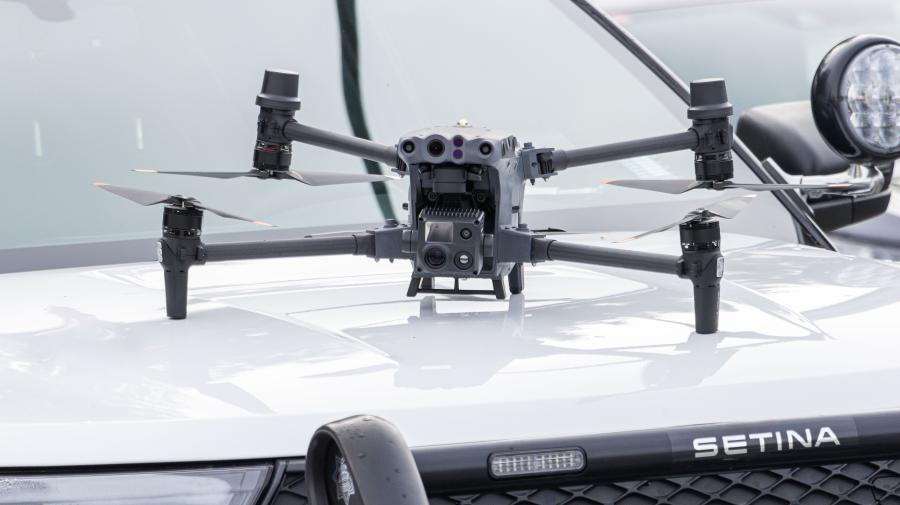Remotely Piloted Aircraft Systems (Drones)
Surrey Police Service (SPS) uses Remotely Piloted Aircraft Systems (RPAS), commonly known as drones, to gather digital imagery to support public safety, advance investigations, expand operational awareness, and aid in critical incidents.
How SPS uses RPAS
SPS uses RPAS to enhance public safety and provide efficiencies in police response. Common uses for RPAS include:
- Public order at large-scale public events – provides oversight of crowds to ensure peaceful, lawful and safe behaviour.
- Missing persons / search and rescue – provides a unique view, thermal imaging, and ability to work over remote areas efficiently.
- Digital evidence collection at crime scenes and motor vehicle collision scenes – assists investigators with mapping and documenting.
- Critical and life-threatening incidents – provides long and accurate visuals of critical incidents where lives are in danger (barricaded suspects, hostage situations, individual with a firearm, etc.).
- Disaster response and recovery – provides arial visuals of large areas and areas that may not be accessible to first responders.
RPAS flights are not conducted for surveillance purposes, however, may be used in exigent circumstances where there is an imminent risk to life or safety that can be alleviated by using an RPAS and/or where there is judicial authorization.
RPAS will also not be used to record and/or identify members of the public involved in peaceful protests or demonstrations, unless their activities are intermingled with protests by other persons whose activities are not peaceful, lawful and safe.
Authority for police to use RPAS
The use of RPAS by police agencies is governed by legislation, including the Criminal Code, Aeronautics Act, and Canadian Aviation Regulations. SPS conducts advanced operations of RPAS in accordance with regulations established by Transport Canada and Navigation Canada, and each SPS RPAS operator is licenced and trained.
Police must legally justify the use of drones. Each use of an RPAS by SPS is reviewed and only conducted if legal authority and/or judicial authorization have been obtained.
Privacy and RPAS recordings
SPS completed a Privacy Impact Assessment for the use of RPAS and implemented policy to govern the use of RPAS to protect the safety and privacy of the public, while advancing public safety (OP 4.48.2 Remotely Piloted Aerial Systems – Member Use).
RPAS pilots make all reasonable efforts to avoid the recording of unrelated personal information and to remove personal information not related to the investigation or purpose of flight (faces, addresses, licence plates, voices, etc.).
Flight missions may be recorded and all recordings that are of evidentiary or training value are handled and stored in accordance with SPS’s Digital Evidence Management policy. Imagery and/or data that is of no evidentiary or training value is retained for 30 days and then deleted.
All individuals have a right to access their personal information and general information resulting from use of the RPAS. If you have questions about making a request, please contact SPS’s Freedom of Information and Protection of Privacy Office.

